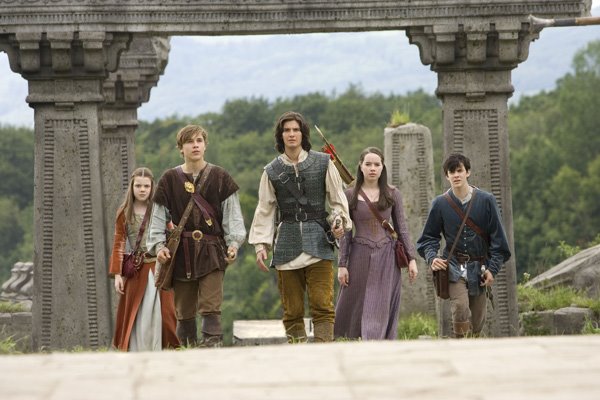I honestly didn't know what to expect in reading Plantinga's book. I didn't even know what the CRC was until coming to Calvin this year, and I still have yet to step into a CRC church. I have somewhat been dreading what this book might say, but I was actually very surprised to have liked the first chapter. I realize I have nothing to fear; the "Reformed Vision of Faith, Learning, and Living" was not going to kill me. Sometimes I forget how similar we Protestants are to one another theologically. Just because I may consider myself an Arminian (don't judge me), I need to remember that Calvinists aren't out to get me for that.
The chapter first describes "stabs of hopeless joy," which reminded me a lot of the class introduction to C.S. Lewis' life (in fact, Plantinga brings C.S. Lewis in to this discussion on joy a few pages later.) In fact, I found the chapter in general to be very complementary to the C.S. Lewis DCM. I loved the C.S. Lewis quotes in this chapter, especially the one from The Weight of Glory on page 6, "It would seem that Our Lord finds our desires not too strong, but too weak. We are half-hearted creatures, fooling about with drink and sex and ambition when infinite joy is offered us, like an ignorant child who wants to go on making mud pies in a slum because he cannot imagine what is meant by the offer of a holiday by the sea. We are far too easily pleased." I related a lot to this part of the chapter because I have deep longings in my heart, especially longings for the future, of having a family. This really convicted me, "We may want a good career or a family or a particular kind of life, and these things may come to us. But if they come, they will not fill all our niches because we want more than these things can give." That is such a true statement, one that I need to hear over and over again. As much as I know that statement is logically true, it is hard for me to grasp that concept on a heart-level.
I agree with Plantinga's assertion that indeed, "The truth is that nothing in this earth can finally satisfy us." God made us for Him. Plantinga then continues to say that longing is an ingredient of hope, along with imagination and faith (an example of this threefold combination of hope is shown on page 9 describing Martin Luther King Jr.). The issue of justice is discussed in terms of its extraordinary difficulty. For me, it is hard to "imagine how life must be for others," especially those who differ from me, and thus, I struggle to reconcile my comfortable life with the poverty and pain that surround me. Then, Plantinga writes about shalom-- the "webbing together of God, humans, and all creation in justice, fulfillment, and delight." Hope, then, is a "prognosis" for the human predicament, hope that is centered around Jesus Christ.
I liked what Plantinga had to say, and I love the references to C.S. Lewis. What a perfect combination to study C.S. Lewis with Plantinga, given Plantinga's many references to what we're reading in our DCM section! I really enjoyed the section on longing because I could relate to it deeply. At the same time, however, I found the rest of the material rather dry and dense with what I've heard at Calvin College orientation sessions, etc. None of the rest of the material was anything new or innovative, and it didn't give me any profound food for thought. I did like the chapter overall, however, especially the part on longing and the plentiful Bible verses and footnotes.
Subscribe to:
Post Comments (Atom)

No comments:
Post a Comment